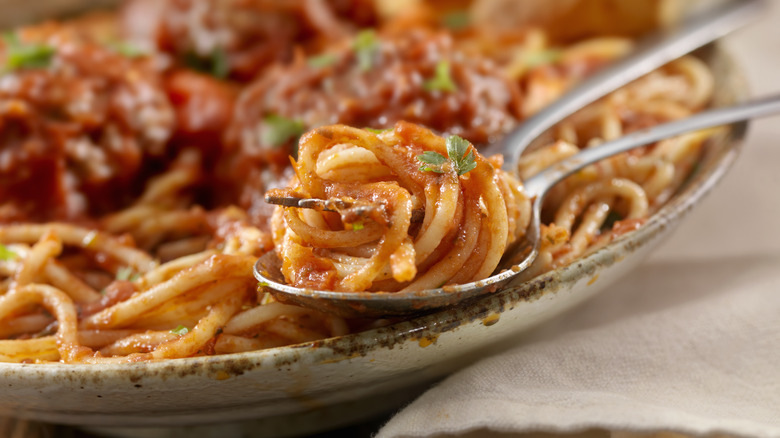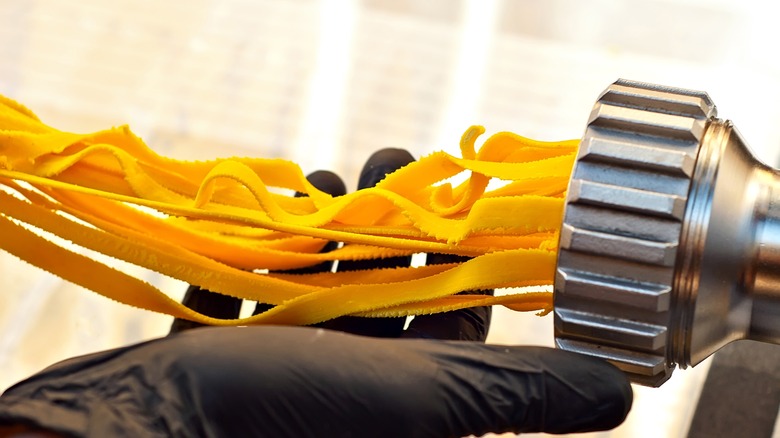How Well Sauce Sticks To Your Pasta May Come Down To The Way It's Made
You'd be forgiven for thinking the main difference between pasta is fresh and dried, and that most store-bought varieties are pretty similar. Believe it or not, it actually does make a difference to your sauce. If you're an Italian food lover, you've probably experienced the frustration of spending time on a tasty homemade pasta dish, only to watch your lovingly cooked tomato sauce slide right off the noodle as you lift it off the plate. There are some key tricks for getting sauce to cling to pasta better, but for such an intimately connected pair of foods, you'd think they would actually stick together more naturally. Well they actually do, or at least they did, but changes in the way pasta is produced means a lot of what you are buying on the shelf isn't made to cling to sauce. That's why you need to look for bronze-cut pasta.
What does bronze have to do with your pasta sauce? Well, bronze was the traditional material used to extrude and shape pasta during the production process. The texture of the material gave pasta a coarse surface. This rougher exterior creates friction and a porous surface that helps sauce stay on pasta better. However, many modern producers coat their pasta dies with teflon, which produces a much smoother finish on the noodles. This process is quicker and cheaper for manufacturers — and wears down machines less — but it gives your pasta a slick, hard surface that sauce falls right off of.
Bronze-cut brands are the best way to help sauce cling to pasta
While the exterior texture of the pasta is why bronze-cut works so much better, there is one other advantage of this material that also helps the marriage between sauce and pasta. The starch in pasta water is one secret to getting a clingy sauce, and because bronze-cut pasta has that more porous texture, it releases more starch into the water as it cooks. So combine that extra-starchy water with the texture of the noodle itself, and you'll never have to worry about Bolognese sauce pooling under a forkful of plain pasta again.
Best of all, there are some common brands of boxed pasta that are still bronze cut, or offer bronze-cut alternatives to their normal pasta. DeCecco is a classic you see in most supermarkets, and all of its pasta is bronze cut. Barilla also offers a premium "Al Bronzo" line as well. Most high-end pasta should be bronze-made as well, but make sure to check the label just in case. If you haven't made a meal with bronze-cut pasta before, you may be surprised by how much of a difference it makes for holding onto sauce, and you'll certainly find it hard to ever go back once you use it.

